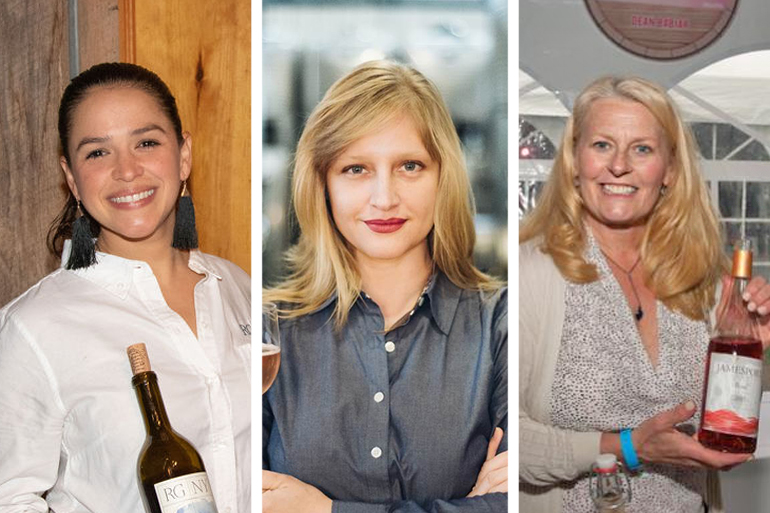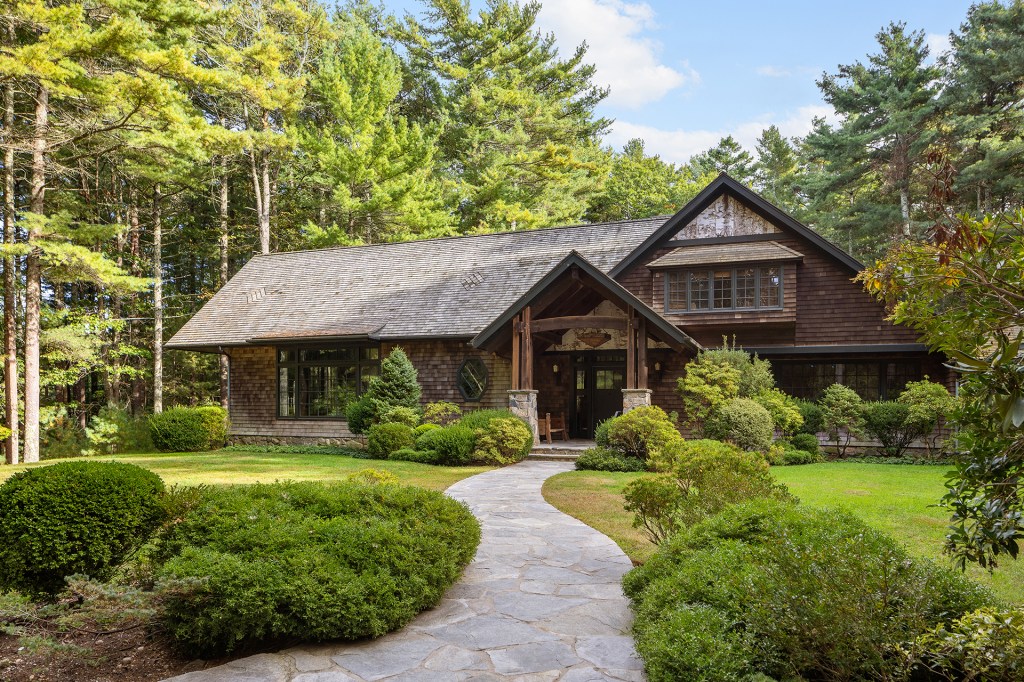A Toast to Female North Fork Wine Trailblazers

Nearly 100 East End vineyards have been increasingly making award-winning wines for the past four decades, but many of those wineries are only able to function because of the women working behind the scenes.
Even though there are more women than ever working in the wine industry, there is still a long way to go until they are equally represented at the most crucial jobs, such as winemaking and management. Right now a majority of the women in the local wine industry are employed as hospitality workers, but change is underway.
“I’ve observed a much higher percentage of women applying for open positions or inquiring about whether we have an open position,” says Alie Shaper, who co-founded Chronicle Wines in Peconic. “To me that is certainly evidence of a sea change happening in our greater culture, where women are feeling empowered and stepping forward more frequently to bring opportunity into their lives.”
Since being founded by two female winemakers, Shaper and Robin Epperson-McCarthy, 15 years ago, Chronicle Wines has grown into five brands. Shaper also has a second company called Alie Shaper Fine Wines and is the winemaker at Croteaux Vineyards in Southold.
“We presently have a woman in every decision-making position in our company,” says Shaper. “That wasn’t so much by design, but it’s how our team has organically developed. We tend to receive a very high percentage of resumes from women, and we’ve been lucky to create a real powerhouse team!”
And they’re not alone.
Ami Opisso, the general manager at Lieb Cellars in Cutchogue, believes that what attracts women to the wine industry is the beauty and experience that comes with working in the industry.
“I think it’s about the beauty and the balance,” she says. “I spend most of my time in front of a computer, but I get to drive along an iconic farm road to get to work, and the view outside my office window is rows on rows of stunning grapevines.”
Opisso and her staff work hard to make sure every guest who walks through their doors has an unforgettable experience, which is why Opisso believes their tasting room is the key to standing out.
“At Lieb, the elevated guest experience at our tasting room is what makes us different,” she says. “Our servers are all formally trained wine professionals, and we focus on education, food pairing and an intimate experience.”
Lilia Perez of RGNY Wines believes the wine industry still has a long way to go for women to achieve equality in the industry, but she is hopeful for the future.
“I feel so proud every time I see and meet more and more women involved in it,” she says.
The idea behind RGNY Wines is that innovation is key. It’s what keeps the customers coming back and also what sets them apart from the competition.
“We offer a modern approach to wine while embracing traditional winemaking techniques,” Perez explains. “We are passionate and serious about our winemaking. We want our visitors to go back home with a complete wine experience. One that they can share with others and that, hopefully, creates an interest to explore and learn more about the wine culture widely.”
Allison Dubin is a partner and general manager at Channing Daughters Winery in Bridgehampton. She has worked hard with the rest of the staff at Channing Daughters to produce a quality wine for their customers, but also to provide a fun and educational environment when visiting.
“Our sense of play and creativity makes awesome wines,” she says. “We have an amazing supportive group of wine club members and guests who are an important part of what we do, as well as our team that has been together for so many years in the vineyard, cellar and in tasting operations.”
Dubin’s career at Channing Daughters began back in 1999 when she drove up to the vineyard to meet the founder, Larry Perrine. They have remained close over the years, and he’s someone she considers to be one of her greatest teachers.
“I love this business so very much and feel blessed to have my career going on 20 years here at Channing Daughters,” says Dubin. “We live in one of the most beautiful places, and we get to make something that provides pleasure and simultaneously be stewards of our land and focus on sustainability in our community.”
Epperson-McCarthy, who runs Saltbird Cellars in addition to her role at Chronicle Wines, believes her local knowledge sets her wine apart from others.
“That global viticultural education combined with local knowledge derived from growing up on the North Fork are what go into every bottle of Saltbird Cellars wine,” the winemaker says.
Epperson-McCarthy’s main goal is to make quality wine available to everyone, no matter their economic status.
“Wine is meant to be shared,” she says. “Wine and food are a reason for people to come together. Wine does not have to be the realm of only the elitists. Maybe a conversation with someone new may result in a new culinary tradition that wouldn’t have come about eating and talking with the same people every day.”
Jamesport Vineyards offers their guests a full experience when visiting.
“Our staff is quite knowledgeable about our wine and can assist guests in determining their wine preferences,” says manager Joanne Goerler. “In addition to this, we also have a wood-fired oven on site, operating as Little Oak Wood Fired Kitchen. Our chef incorporates our wine in many of his dishes and educates our staff on wine suggestions to pair with his foods. We hope that our guests can enjoy,
relax and take a break in our vast backyard.”
Jamesport Vineyards is a great example of how women are starting to gain some footing in the wine industry. Seventy-five percent of the staff at the vineyard are women. However, Goerler still believes there is more work to be done to get women more hands on jobs.
“There are studies that show that women actually are better suited when discerning flavors in wines, something that can certainly be an asset in a female winemaker,” she says. “I’d love to see more women represented in that capacity!”



